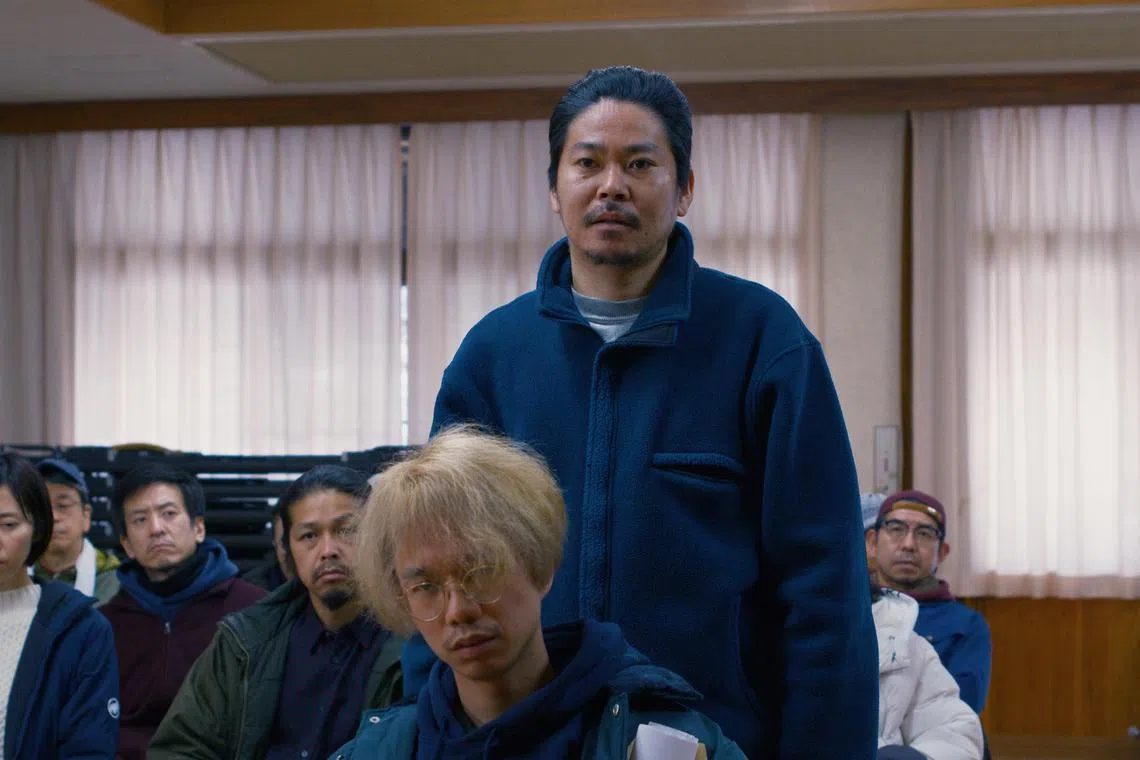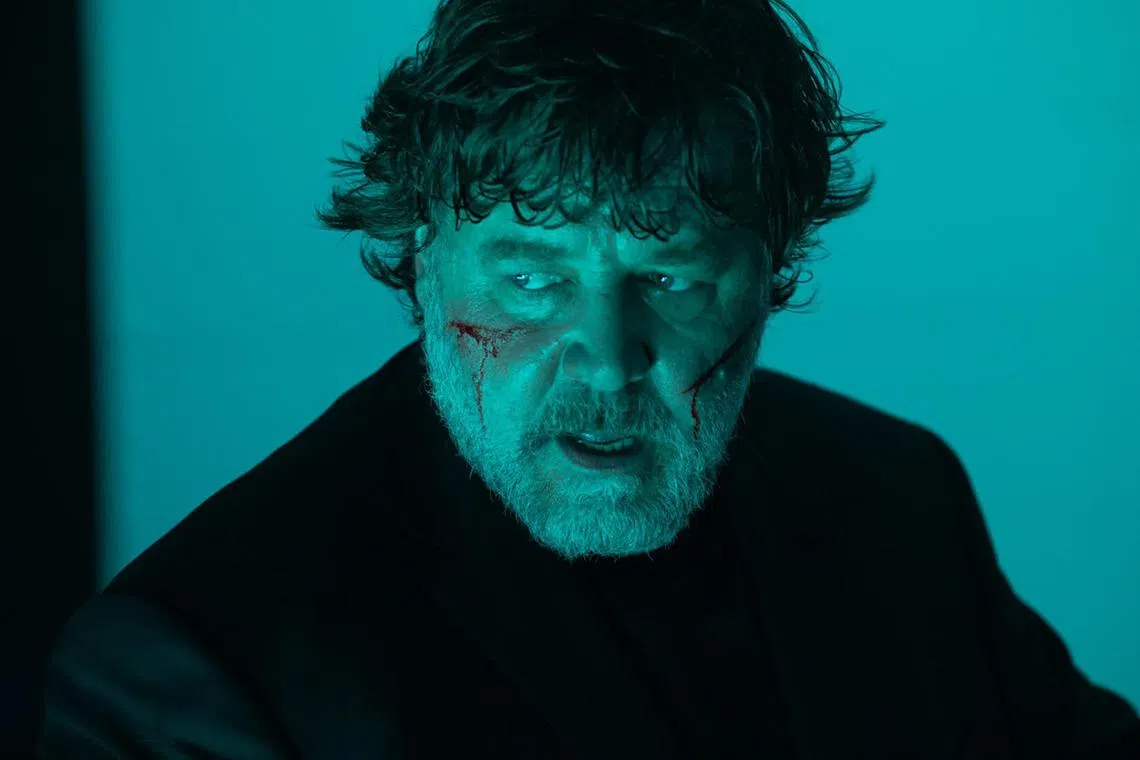At The Movies: Evil Does Not Exist a terrifying eco-parable, horror cliches possess The Exorcism
Sign up now: Get ST's newsletters delivered to your inbox

Hitoshi Omika is a taciturn widower in Evil Does Not Exist.
PHOTO: THE PROJECTOR
Follow topic:
Evil Does Not Exist (PG)
106 minutes, opens exclusively at The Projector on July 4
4 stars
The story: A Japanese mountain village on the outskirts of Tokyo is upset by a proposed glamping site for city tourists. Japanese writer-director Ryusuke Hamaguchi helms this 2023 Venice Film Festival Grand Jury Prize winner, which also won best film at the London Film Festival and Asian Film Awards.
Hamaguchi’s latest triumph comes on the heels of his twin global hits, the 2022 Academy Awards Best International Feature Film winner Drive My Car and 2021 Berlin Film Festival’s Silver Bear recipient Wheel Of Fortune And Fantasy.
Evil Does Not Exist looks to be another unhurried humanist drama. Taciturn widower Takumi (Hitoshi Omika), the local handyman, chops wood and walks with his eight-year-old daughter (Ryo Nishikawa) in the unspoiled forests.
But there are distant gunshots. Composer Eiko Ishibashi’s dissonant score cuts in and out, and what is with that silent four-minute prologue gazing up at barren tree branches?
Something is off.
The centrepiece is a town hall meeting, one of those absorbing lengthy exchanges that are Hamaguchi’s hallmark. It is the Tokyo developer’s cynical public relations exercise to sell the close-knit community on the benefits of tourism. No yokels, the residents – these non-professional actors have such great faces – angrily pelt concerns of wildfires and groundwater contamination at the two hapless low-level corporate representatives (Ryuji Kosaka and Ayaka Shibutani), who, in a surprising turn, become unlikely converts to their oneness with the natural world.
Hamaguchi is a storyteller too abstruse for a didactic conflict between rural and urban, or nature versus capitalism. With masterful control of tone and thought, the pastoral folktale bears out its sinister undercurrent and swells into an environmental thriller altogether more mysterious, apocalyptic and terrifying.
Hot take: From the title to its shocking ending, this unsettling eco-parable defies expectations and explanations.
The Exorcism (M18)
96 minutes, opens on July 4
2 stars
The story: There is Method acting. And then there is New York actor Anthony Miller (Russell Crowe), a recovering alcoholic whose disruptive behaviour during a remake of the 1973 movie The Exorcist has his daughter (Ryan Simpkins) worrying whether he is relapsing or truly possessed.

Russell Crowe plays an actor whose disruptive behaviour during a remake of the 1973 movie The Exorcist has his daughter worrying whether he is possessed.
PHOTO: SHAW ORGANISATION
The Exorcist, on its way to becoming the most influential horror film of all time, was plagued by nine deaths, debilitating crew injuries and a freak fire.
American director and co-writer Joshua John Miller is the son of actor Jason Miller, who played the doomed Father Karras flinging himself out a window at the climax. The Exorcism is a re-enactment of the late Miller’s experiences on the famously “cursed” production, with his fictitious namesake the protagonist.
It is a meta movie-within-a-movie set on a studio soundstage, of interest most for the Hollywood lore which Joshua John Miller, despite his personal connection, somehow reduces to genre cliches like creaky doors and levitating entities.
Anthony goes from sleepwalking to sleepwalking naked and bloodied. The washed-up star has landed the leading role of a Catholic priest in an exorcist movie, in his hope for professional redemption after years hiding at the bottom of a bottle following his wife’s passing. Instead, he is unravelling under the pressure.
Never forget, Crowe of Gladiator (2000) and A Beautiful Mind (2001) was an acting force. He brings gravitas to Anthony’s metaphorical demons and the ambiguities between grief, guilt, addiction, childhood trauma, performance and the supernatural.
But Miller frustratingly mishandles these dramatic possibilities, and the psychological anguish is just so much poorly lit glum.
Hot take: Another B-movie religious horror within a year of The Pope’s Exorcist (2023). And Crowe’s Satan-slayer does not even get to ride a Lambretta scooter in his cassock this time.


